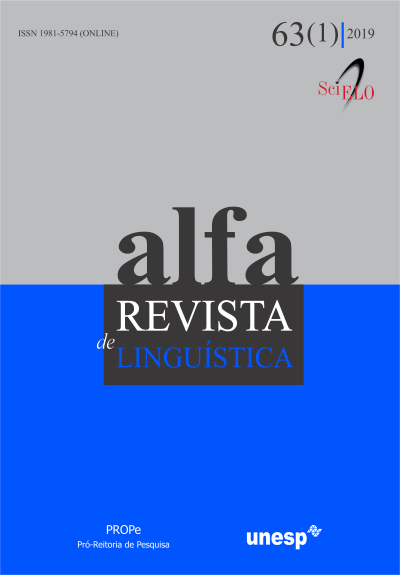The Sephardic Jews in Curaçao and their role in the formation of Papiamentu
DOI:
https://doi.org/10.1590/1981-5794-1904-1Keywords:
Sephardic Jews, Papiamentu, Social and linguistic role,Abstract
This study aims to analyse the participation of Jews in Papiamentu’s linguistic configuration, based on original research and on published literature (HENRIQUEZ, 1988, 1991; MARTINUS, 1996; JACOBS, 2012). The analysis of 18th century documents reveals that Sephardic Papiamentu, which is more similar to Portuguese, influenced the general variety. Prayers and epitaphs in Portuguese confirm that this was the language used by several Sephardic Jews as well. Additionally, Martinus (1996) and Jacobs (2012) present records that may point to a relationship among Senegambia/Upper Guinea, Amsterdam and Curacao through the slave trade conducted by the Jews. Thus, this study intends to show that the Jews had an important role in Curaçoan society, influencing the configuration of Papiamentu. In addition, we follow an approach similar to the one supported by Faraclas et al. (2014): a convergence of elements has to be considered in studying the Atlantic Creole formation, namely the agency of different languages speakers.
that may point to a relationship among Senegambia/Upper Guinea, Amsterdam and Curacaothrough the slave trade conducted by the Jews. Thus, this study intends to show that the Jewshad an important role in Curaçoan society, influencing the configuration of Papiamentu. Inaddition, we follow an approach similar to the one supported by Faraclas et al. (2014): aconvergence of elements has to be considered in studying the Atlantic Creole formation, namelythe agency of different languages speakers.Downloads
Downloads
Published
How to Cite
Issue
Section
License
Manuscripts accepted for publication and published are property of Alfa: Revista de Linguística. It is forbidden the full or partial submission of the manuscript to any other journal. Authors are solely responsible for the article's content. Translation into another language without written permission from the Editor advised by the Editorial Board is prohibited.

